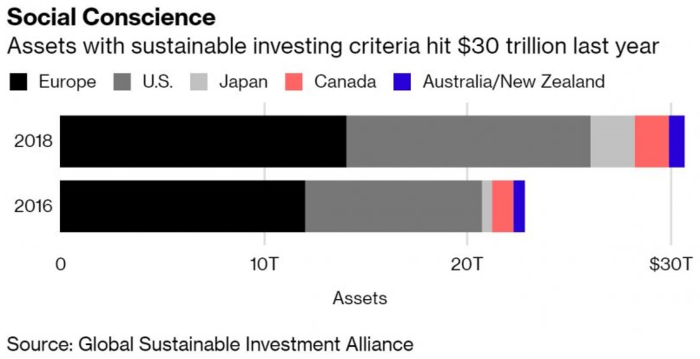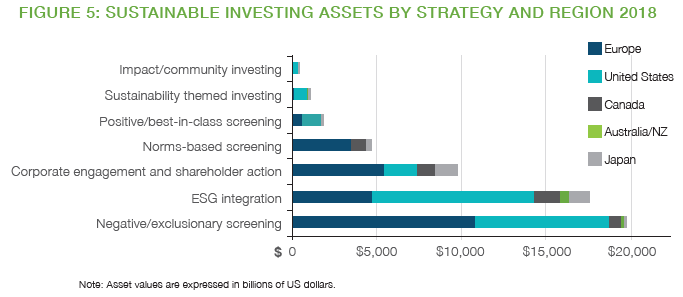The tide is turning: Why your super fund is developing a conscience
By David Thornton
Environmental, social and governance (ESG) principles have traditionally served as the marketing jargon of image-conscious companies rather than being a genuine call to action.
But "the tide is now turning" from niche to mainstream, says First State Super chief executive Deanne Stewart.
She says super funds, as part of their sustainability mandate, are investing with a social conscience and increasingly demanding that companies fall into line.
Global sustainable assets hit $30 trillion in 2018, up 34% from 2016, according to the Global Sustainable Investment Alliance (GSIA).
In Australia responsible investment accounted for $866 billion in assets under management in 2018, up 37% from $633 billion in 2016.
Companies increasingly recognise that operating sustainably is not just the ethical thing to do, but also the financially prudent thing to do.
"Corporations are seeing that if they don't take this seriously, the risk they'll expose themselves to over the long term will be too great," says Stewart.
The same kind of realisation is dawning on retail investors, who are acknowledging the social, environmental, but also financial, advantages offered by sustainable investing.

"Being more sustainable in your mindset and the way you invest certainly means you will outperform over the long term... In the short and very long term, our sustainable investment portfolio has outperformed, but over the medium term our default MySuper fund has outperformed."
Sustainable investing isn't just about divesting from environmentally harmful assets. It requires collaboration where possible and pressure when necessary.
"People think that you jump straight to divestment, but that is actually the last thing we do [at First State Super]. Instead of just dumping anything that produces carbon emissions, we engage with companies as they develop a carbon transition plan.
"Step two is corporate action - how you use your proxy votes, particularly when it comes to issues around governance.
"The third thing is to apply an ESG lens to our assets. Are there good working conditions for their employees; is there good governance with a clear vision and purpose?"
Sustainable investing is only part of the solution, however.
Transitioning to a sustainable future requires both small and large cap companies playing ball.
"You want smaller firms innovating, but on the other hand, you want large companies doing it as well as they transition from high to low carbon, they've got to be investing their capital in transition," says Stewart.

The need for a collaborative approach between investors and companies has led to progress in the way ESG is reported.
The Task Force on Climate-related Financial Disclosures (TCFD) provides a standard for companies to meet when disclosing things such as carbon emissions.
Meanwhile, the Climate action 100+ group, of which First State Super is a member, has given the investing community a collective voice.
"Big investors like First State Super are taking the lead with some of these corporates and saying, "we expect you to meet this standard that has been created and make that disclosure so we can be sure of what your carbon footprint is today, and your transition plans away from that over the next decade. That's been highly effective," says Stewart.
The message seems to be getting through, with carbon-heavy companies such as AGL, Santos and Origin all committing to emissions reduction plans.
"We've been working with those companies on being transparent on their financial statements around their carbon footprints, and what their plans are to transition to a low carbon economy. Over a period of time they've become far more transparent and clear around what their plans are."
If you are an investor interested in signing on to Climate Action 100+, visit climateaction100.wordpress.com.
Get stories like this in our newsletters.



